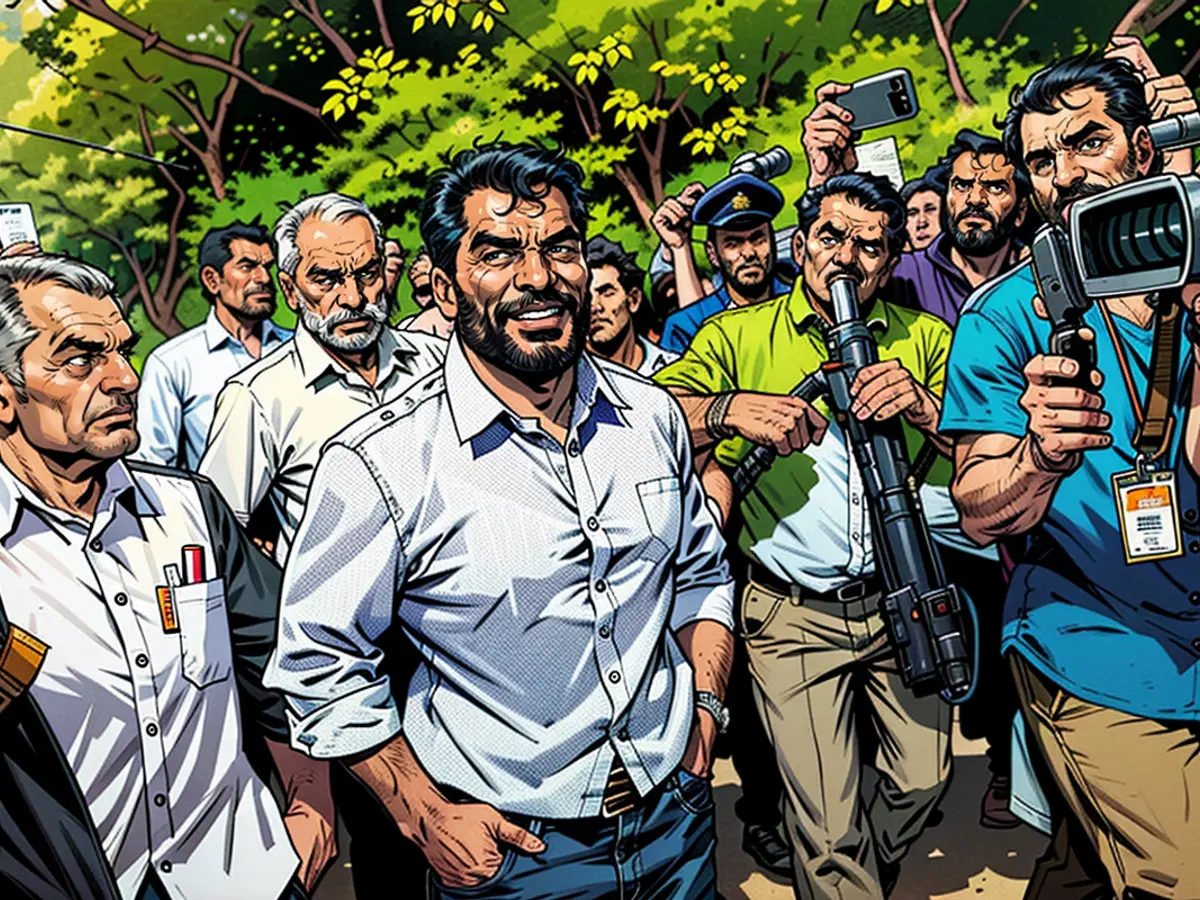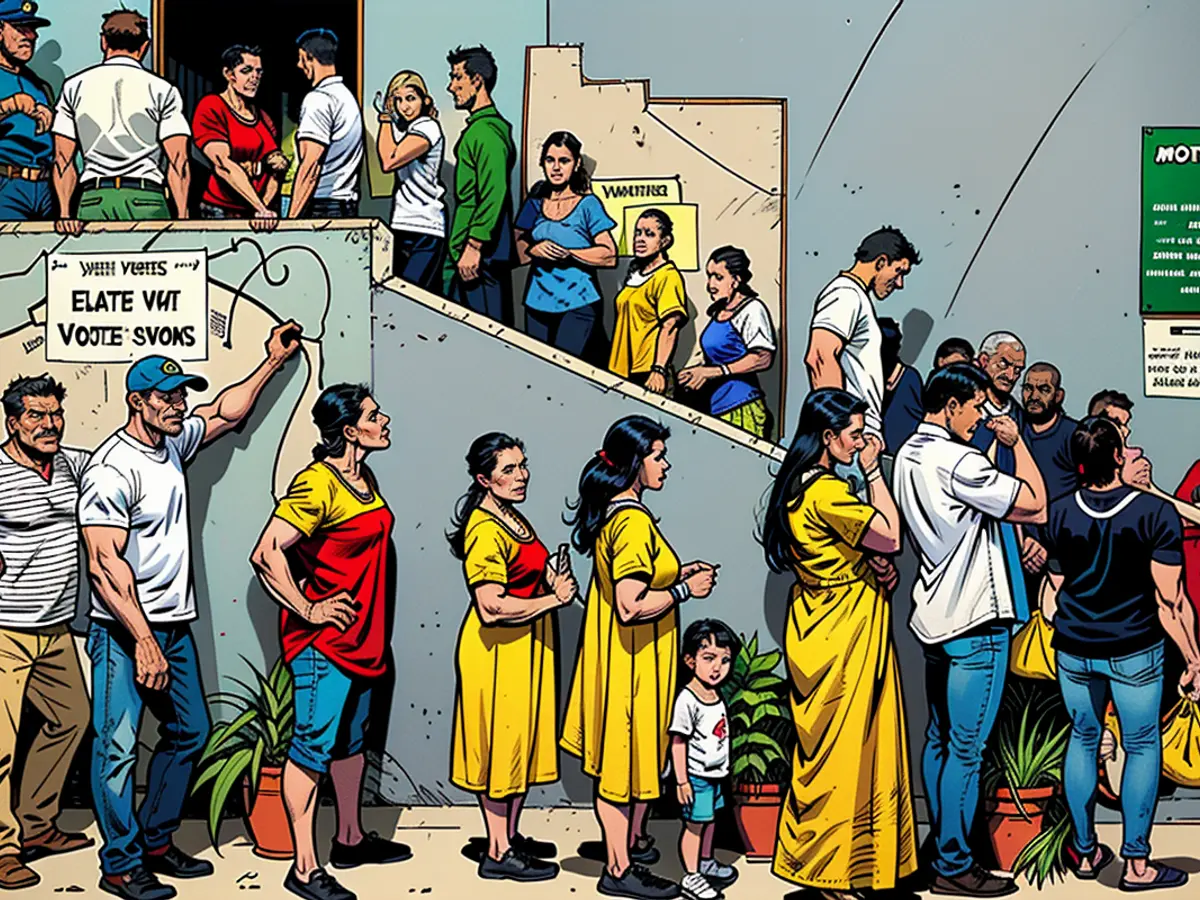Voters in Sri Lanka appoint Marxist-inclined Dissanayake as president to rectify the nation's economic issues.
Dissanayake, 55, without the political lineage of some of his opponents in the presidential contest, led from the get-go during the vote counting, eliminating incumbent President Wickremesinghe and opposition leader Premadasa.
"We believe we can transform this nation, create a stable government, and advance," Dissanayake stated to reporters following his victory, confirmed after a second vote tally.
The election served as a referendum on Wickremesinghe, who steered the financially strapped nation's delicate economic recovery from an economic collapse, but his austerity measures displeased voters. He ranked third with 17% of the votes.
"Mr. President, I am handing over to you with affection, the dearest child called Sri Lanka, which we both cherish dearly," Wickremesinghe, 75, conceded in a statement.
Dissanayake obtained 5.6 million or 42.3% of the votes, marking a significant leap from the 3% he achieved in the previous presidential poll in 2019. Premadasa placed second with 32.8%.
For the first time in Sri Lanka's history, the presidential race was decided by a second tally of votes after the top two contenders failed to secure the mandatory 50% of votes to be declared victorious.
Under the electoral system, voters cast three preferential votes for their preferred candidates. If no candidate exceeds 50% in the first count, a second tally determines the winner between the top two candidates using the preferential votes cast.
Approximately 75% of the 17 million eligible voters participated in the election, according to the election commission.
This was Sri Lanka's first election since its economy collapsed in 2022 due to a severe foreign exchange shortage, making it unable to purchase essential imports like fuel, medicine, and cooking gas. Protests forced then-President Rajapaksa to flee and eventually resign.
Dissanayake presented himself as a change agent for those impacted by austerity measures associated with a $2.9 billion International Monetary Fund bailout, promising to dissolve parliament within 45 days of assuming office for a fresh mandate for his policies in general elections.
"The election result demonstrates the uprising that occurred in 2022 is not over," said Pradeep Peiris, a political scientist at the University of Colombo.
"People have voted in line with their aspirations for different political practices and institutions. AKD (Dissanayake's popular nickname) embodies these aspirations, and people have rallied around him."
Dissanayake's manifesto has raised concerns among investors by pledging tax reductions, which could impact IMF fiscal goals, and a $25 billion debt restructuring. During the campaign, however, he took a more conciliatory approach, stating all changes would be carried out in consultation with the IMF and reaffirming his commitment to debt repayment.
Endless struggle for millions
Supported by the IMF deal, Sri Lanka's economy has shown a tentative recovery. The economy is expected to grow this year for the first time in three years, and inflation has decreased to 0.5% from a crisis high of 70%.
However, the high cost of living remained a significant issue for many voters as millions continue to struggle with poverty, and many pinned their hopes of a better future on the next leader.
Dissanayake ran as a candidate for the National People's Power alliance, which includes his Marxist-leaning Janatha Vimukthi Peremuna party. Although the JVP holds only three parliamentary seats, Dissanayake's proposals for increased anti-corruption measures and more support for the downtrodden bolstered his popularity.
He will need to ensure Sri Lanka stays on track with the IMF program until 2027 to establish a steady growth path, reassure markets, repay debt, attract investors, and help a quarter of the population escape poverty.
"The root cause of this country's downfall is poor management. We have a compelling feeling that if we have a competent ruler to lead this country, we can succeed in the future," said Janak Dias, 55, a real estate businessman.
The newly elected President Dissanayake acknowledged the challenging economic circumstances faced by Asia, specifically Sri Lanka, stating, "We understand the hardships of the world, and we are committed to alleviating poverty in our region."
In his victory speech, Dissanayake expressed his intentions to strengthen ties with neighboring countries in Asia, stating, "We will work closely with our Asian counterparts to promote economic cooperation and stability in the region."








